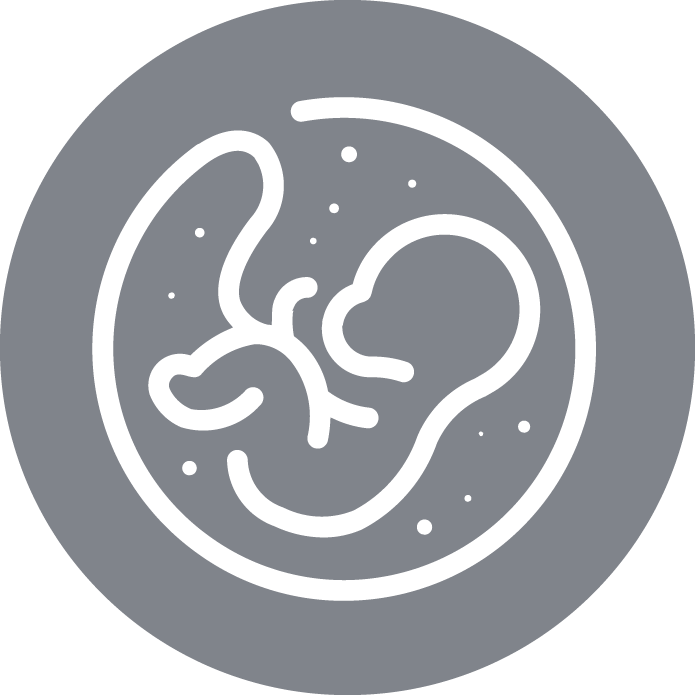Six medical scientific societies reach a consensus on the role of obesity in infertility
Regarded as one of the major global health problems, obesity is now an epidemic in our society.
Across Europe, more than half of the adult population and one in three children suffer from obesity.
Its detrimental effects on health are well known, as it is one of the main risk factors for type 2 diabetes and other diseases such as cardiovascular disease. Yet in terms of fertility, the population is less aware of its risks.
Recently, six scientific societies, including the Spanish Fertility Society (SEF) and the Spanish Society of Gynecology and Obstetrics (SEGO) have drafted a position paper to establish a common, multidisciplinary approach to obesity-related infertility.
The other 4 societies involved in the consensus document are the Spanish Society of Endocrinology and Nutrition (SEEN), the Spanish Society for the Study of Obesity (SEEDO), together with the Spanish Association of Urology (AEU) and the Spanish Scientific Society of Dietetics and Nutrition (SEDYN).
Infertility, a weighted issue
There is a strong link between infertility and being overweight. According to the consensual scientific statement, the principal warning is that obesity can double the risk of infertility. In fact, it is estimated that for every unit of BMI over the normal weight range, the probability of spontaneous pregnancy is reduced by 5% per year.
Many of the couples who are overweight or obese must resort to assisted reproduction treatment.
Currently, overweight women account for around 23% of patients undergoing treatment. "These conditions the success of the techniques because of the lower response to ovarian stimulation in these women and their lower embryo implantation rates. In addition, the oocytes, as with sperm, are of poorer quality", explains Dr. Joana Peñarrubia, a member of the SEF Endocrinology Interest Group.
Obesity and female fertility
Obesity can affect female fertility in several ways. Excess body fat can affect ovulation and lead to irregular menstrual cycles. Obesity also increases the risk of hormonal disorders such as polycystic ovary syndrome (PCOS).
"Both males and females can experience fertility problems as a result of obesity. However, the impact on women is more directly evident when the menstrual cycle is affected. As these changes are more noticeable, women tend to seek specialized medical attention earlier," says the specialist.
These hormonal and ovulatory alterations make it difficult to achieve spontaneous pregnancy.
In addition, obese women have an increased risk of miscarriage and complications during pregnancy (such as gestational diabetes, high blood pressure and prematurity), delivery and postpartum.
The combined work of the scientific societies highlights the importance of further assessment regarding the benefits of anti obesity drugs on female fertility. They also stressed that women over 35 years of age with severe obesity should be prioritized on waiting lists for bariatric surgery.
Obesity and male fertility
Obesity also affects male fertility. On the one hand, it increases the likelihood of erectile dysfunction, and, on the other hand, it reduces the quality and quantity of spermatozoa.
Men with obesity experience hormonal alterations: estrogen levels increase, and testosterone levels are reduced. When combined with increased testicular temperature, this reduces sperm quality by damaging the integrity of the sperm's DNA.
In the consensus document, physicians and scientists concluded that more research is needed to explore the relationship between obesity and male infertility. The causes and consequences are not as well defined in men. It has also been found that the negative effect on fertility is enhanced if both partners are obese.
1 in 5 Spanish adults suffers from obesity
In Spain, it is estimated that the prevalence rate of being overweight is 39.3%, while the prevalence rate of obesity is 21.6%. These rates refer to adults ranging from 25 to 64 years of age and, therefore, mostly of childbearing age.
"Given the high percentage of people suffering from obesity and its negative effects on fertility, this is not a minor issue and must not be underestimated. To better understand the relationship and improve the success rates of patients with obesity in treatment, a multidisciplinary approach and more studies are needed," concludes Peñarrubia.
We tend to focus on complex problems related to infertility. However, sometimes simpler aspects such as weight loss or adopting healthier habits can play an essential role in achieving pregnancy.
Excess weight and obesity can have a negative influence on achieving pregnancy, whether naturally or through assisted reproduction techniques. This is due to the fact that, in both men and women, the pathology can cause endocrine alterations that compromise fertility.



